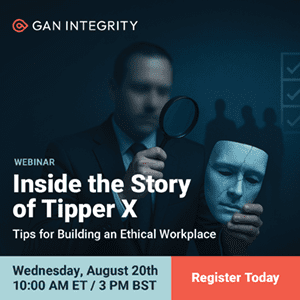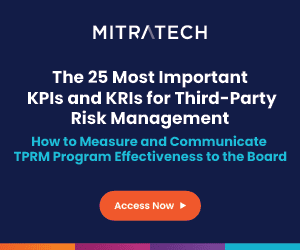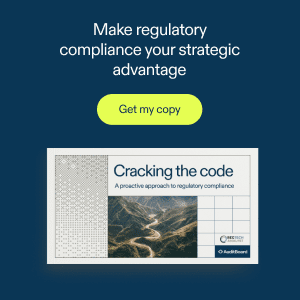Failed mergers create perfect storms of executive departures, talent flight and investor lawsuits, but they also offer strategic reset opportunities. Using Kroger’s post-Albertsons crisis as a case study, Alvarez & Marsal’s Conor Johnston maps the three-pronged approach boards need to transform regulatory setbacks into competitive repositioning.
Kroger is on the road to recovery after a challenging few months in which the company lost a $25 billion merger bid and its CEO. The pressure is now on the board, which will need all hands on deck to bolster one of the Fortune 500’s top 25 companies.
Merging two of the nation’s largest grocery store chains would be difficult in the best of circumstances, but the December 2024 ruling that blocked Kroger’s bid to take over rival Albertsons has been particularly rough for Kroger.
In March 2025, CEO Rodney McMullen resigned suddenly following an internal investigation into personal conduct concerns. At the same time, Albertsons filed a lawsuit against Kroger for not adequately addressing regulatory concerns. These events, combined with the continued uncertainty of tariffs affecting the supply chain, has Kroger on its back foot.
Kroger needs to adapt to its new reality. Shareholders, the board and management expected significant value creation from the Albertsons merger. With the FTC’s decision, Kroger’s near-term strategy has been upended. Kroger’s best bet to weather this near-term storm is to focus on its core operational competencies and keep its loyal customers front and center.
That’s a tall order. Without a permanent CEO, the board is responsible for getting the company back on track.
Refocusing a company after a regulatory setback like this is never easy. Mergers at this scale take time and focus and often reorient entire departments whose only job becomes diligence, integration planning and integration execution. From a strategic standpoint, the company now has shareholder returns goals that have been disrupted but still need to be met.
Often, one of the key objectives of a merger like the one proposed between Albertsons and Kroger is to capture the “synergies” that come with merging two similar workforces. By eliminating redundancies in their corporate offices, Kroger could have realized improved shareholder returns, earnings, value creation objectives — which now need to be realized in some other way.
It’s why you often see corporate layoffs after a merger like this falls through. First, the executive sponsor of the deal often gets removed, followed by members of the executive and deal team. Already, Kroger announced plans to slash the size of its corporate office — likely as it looks to make up for some of these missed opportunities.
After all of the energy invested in the merger diligence and planning, navigating immediate C-suite and other executive level replacements can challenge even the most seasoned boards and management teams. To come out of this post-merger chaos better on the other side, Kroger’s board should buckle down and reassess the company’s entire strategy by explicitly focusing on internal operations, customer and market performance and future leadership.
When the Ink Dries: 6 Critical Post-Transaction Areas That Make or Break M&A Success
Poor follow-up once the deal is closed can cause culture clashes & value erosion
Read moreDetailsInternal operations
When a $25 billion deal like this falls through, it is easy to get caught up in the headlines and external buzz while losing sight of what’s happening within the business’s four walls. Key talent may start to slip away, and, with morale shaken, they could seek opportunities elsewhere, including with competitors.
To prevent a talent drain, it is crucial to keep employees engaged and provide clarity on their roles and expectations during this transition. Uncertainty can lead to declining morale, which may impact both internal operations and overall performance. The board, or at least its key members, should prioritize retaining top talent and maintaining stability to ensure the company stays on track.
Customer and market performance
Refocusing a company’s strategic direction and operational performance, while replacing key executives, is never easy and will impact financial performance. Allowing the share price to slip too far can sink a company. While part of the board is focused on ensuring that internal operations stay effective, another part should be ensuring that the capital markets remain satisfied.
Usually, after a merger like this falls through, a company is hit with several shareholder derivative lawsuits. This is where war chests need to be opened to satisfy investors and the capital markets. Already, Kroger has instituted a stock buy-back plan, laying down $5 billion, an expensive Band-Aid that may help soothe some investors’ ruffled feathers.
Future leadership
Finally, there’s the issue of who can permanently lead the company and build a new strategic vision. The good news for Kroger is that the next CEO won’t be starting from zero. Expanding private label options is where the grocery store chain should head to better control supply chains and boost its profit margins in the short term.
At the same time, the board has to hire a strong, dynamic leader to reassure investors and employees while steering the company through this critical transition. Beyond addressing immediate challenges and stabilizing operations in the wake of the blocked merger, this new leader must bring both operational expertise and a strong strategic vision to define Kroger’s near and long-term future. Whether through innovation in supply chain management, expansion of digital and delivery services or a renewed focus on customer experience, the new CEO must articulate a clear, compelling path forward, one that restores confidence in Kroger’s ability to grow and compete in a marketplace facing continuous disruption from non-traditional competitors.
Failing to think comprehensively about all three aspects puts an organization at a disadvantage. More than one company has been sunk by a failed merger — but more than one has succeeded because of it. Lessons can be learned, and Kroger can emerge stronger on the other side. It’s now up to the board to make it happen.




 Conor Johnston is a managing director with Alvarez & Marsal’s corporate performance improvement practice in Houston.
Conor Johnston is a managing director with Alvarez & Marsal’s corporate performance improvement practice in Houston. 







